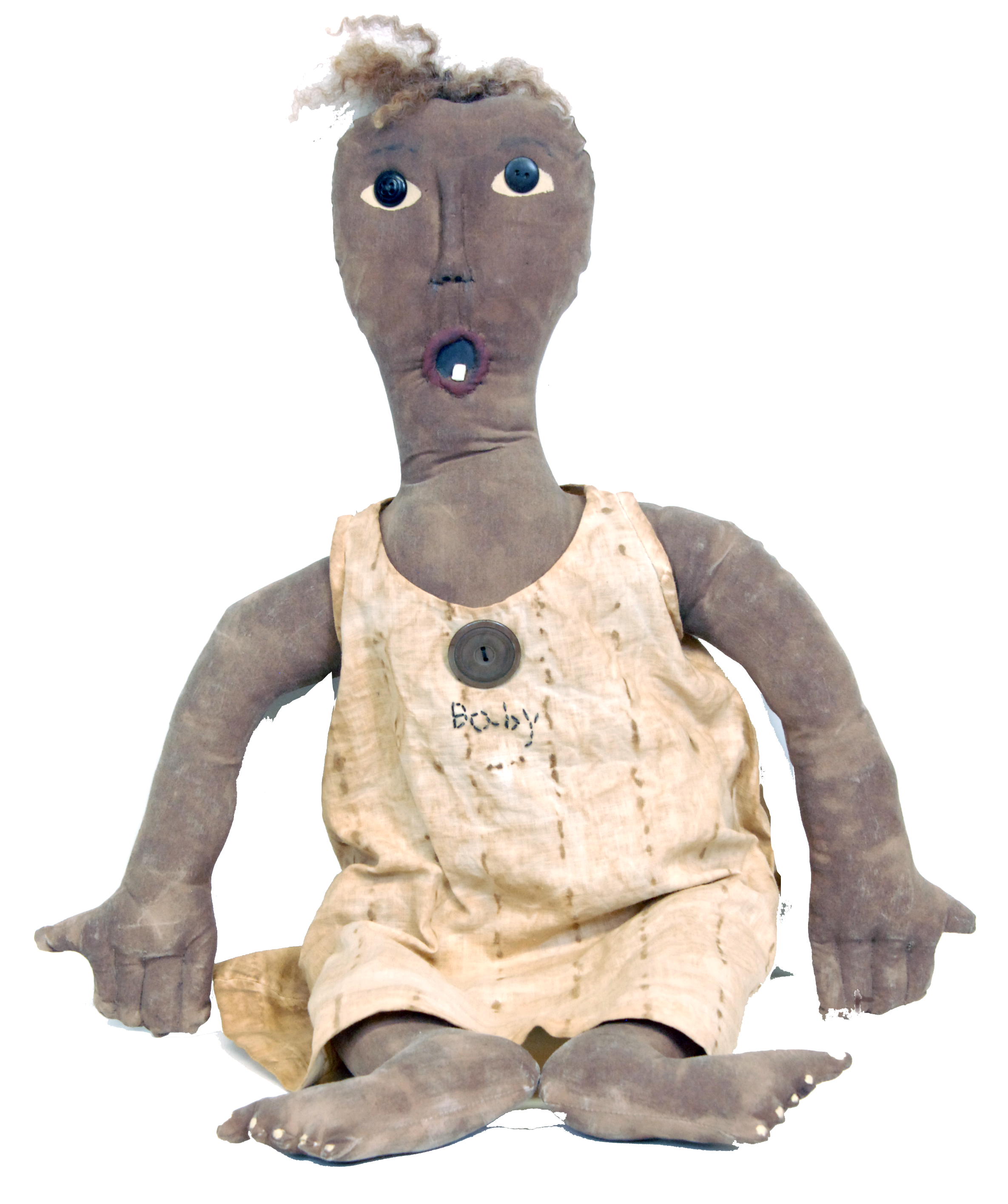Peggy Loving Doll (Loving vs Virginia, 1967)
Known as the “Peggy Loving Doll”, this doll was handmade and decorated by Mildred Jeter Loving of fame for her and husband Richard Loving’s landmark victory decision in the 1967 US Supreme Court, Loving v Virginia. With a whimsical, folk art style construction and craftsmanship, the hair on the doll is clearly human and likely was selected for its decoration from Peggy’s own hair.
The doll’s provenance is very solid and, interestingly, came from the noted and longtime Virginiana collector, Gordon K. Barlow. Gordon, a native of Caroline County, VA was working in his pharmacy in Bowling Green one Sunday when Millie Loving and her daughter, Peggy, were awaiting a north-bound bus heading back to Washington, D.C., where she then lived with her husband, Richard. Virginia state law at that time precluded the couple from cohabiting within the Commonwealth of Virginia. Thus, their marital home until the Supreme Court decision was rendered remained in Washington, D.C. Gordon and Richard Loving had been schoolmates in Bowling Green, VA, and he was a good friend to the couple.
After purchasing bus tickets for Peggy and herself, Millie Loving went back to an aisle of personal grooming products and brought a bottle of hair straightener to the register. As Gordon’s affidavit recounts, Millie did not have sufficient funds to purchase the hair straightener and began to return it to the shelf. Knowing the couple, Gordon told Millie that she was good for an IOU for the $2.85 hair product. As an IOU, Millie picked Gordon’s pencil off the counter and wrote the following on the back of the doll’s head: Gordon / I owe you / $2.85 / Millie Loving. Gordon Barlow shortly thereafter moved to Staunton, VA where he pursued a successful career in pharmacy and healthcare consulting.
The doll itself is more than just a great example of black folk art. When it’s viewed in the context of America’s race struggles of the time, the doll seems to take on a life of its own, emblematic of the troubled past of American race relations. Gordon’s affidavit, a family photograph of the Loving Family, and an issue of the 1967 TIME Magazine that contains a brief article on the court case will accompany this unique doll upon transfer of ownership.





Reviews
There are no reviews yet.